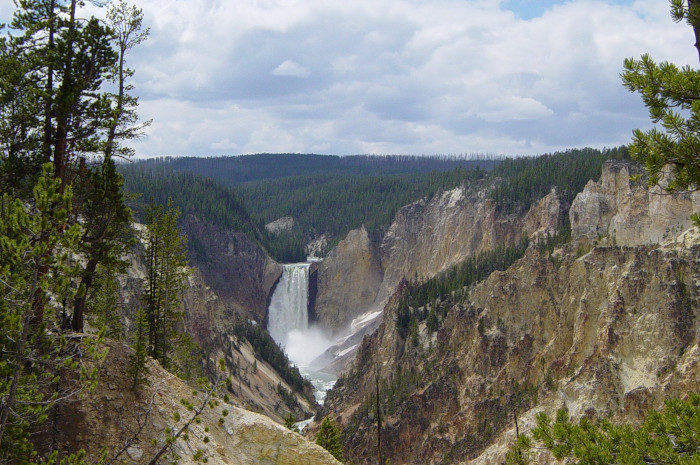UN Biodiversity Conference (COP 15)

Image above: Yellowstone National Park, first national park in the world.
Promoting an agreement on biodiversity protection that takes into account the eradication of poverty.
For the UN Biodiversity Conference (COP 15) starting on December 7, the international community must propose a new agreement to protect biodiversity by 2030.
Those living in extreme poverty around the world and their communities are the first to be affected by climate change and the decline in biodiversity. While they are the hardest hit by these problems, they are the least responsible for their causes. In addition, these communities have fewer resources to protect themselves from such damaging environmental changes.
- Climate change and the deterioration of biodiversity make people living in poverty more vulnerable. Recent extreme climate events have included droughts, fires, floods, hurricanes, and heat waves. Due to these events, people have lost their harvests, their land, their homes, their means of subsistence, and even their lives.
A human rights issue
The loss of biodiversity can hamper the enjoyment of a wide range of human rights. These include the right to life, healthcare, food, water, accommodation, a means of subsistence and work, and even the right to culture.
The rights of people who depend on healthy ecosystems are particularly under threat. In 2012, the 168 Member States of the Convention on Biological Diversity recognised “the severity of biodiversity loss and ecosystem degradation globally”. They highlighted the negative impact of this situation on “food security and nutrition, the supply of and access to water, the health of people living in poverty in rural settings and of populations around the world, including current and future generations”.
In May 20191, the Intergovernmental Science-Policy Platform on Biodiversity and Ecosystem Services (IPBES) issued a scientific report assessing biodiversity and ecosystem services worldwide. In the report, IPBES stated that 75% of the Earth’s surface has been irreversibly changed by human activities. Additionally, current negative biodiversity and ecosystems trends have compromised the 80% progress made with the Sustainable Development Goals. This includes goals linked to poverty, hunger, and health.
Negotiations on biodiversity should include poverty measures
At the UN Biodiversity Conference ATD Fourth World demands that those responsible for negotiations ensure that eradicating poverty becomes an integral part of any new agreement, as per the Paris Climate Agreement of 2015 and the Glasgow Pact adopted in November 2021. It is vital to remember that the Glasgow pact enshrines the need for a “fair transitions that promotes sustainable development, the eradication of poverty, and the creation of decent quality jobs”.
ATD Fourth World demands that any new agreement have these eight proposals to leave no one behind:
- Write into the agreement that “actions to protect biodiversity must contribute to respecting human dignity, to sustainable development, to eradicating poverty, and to respecting fundamental rights”.
- Ensure that this approach be inscribed into the laws of every country.
- Guarantee that people in extreme poverty participate in producing, monitoring, and assessing the measures regarding biodiversity protection. This is because environmental policies and projects that are designed without populations in deep poverty risk having direct adverse effects on them.
- Pay special attention to the 20% of all countries in deepest poverty so that they can contribute to the protection of biodiversity.
- Ensure as a priority direct financing towards the most vulnerable.
- Make sure that people in situations of poverty can benefit from decent, quality training and job creation initiatives in the context of a fair transition towards an economy that respects people and the Earth.
- Put in place social protection foundations in all countries.
- Guarantee access to justice for populations experiencing the worst poverty.
Biodiversity protection can only be effective if it also tackles the eradication of poverty in an integrated manner.
More on ATD’s work on climate justice
Article image by Daniel Mayer used under the under the Creative Commons Attribution-Share Alike 3.0 Unported, 2.5 Generic, 2.0 Generic and 1.0 Generic licenses.
- IPBES (2019): Global assessment report on biodiversity and ecosystem services of the Intergovernmental Science-Policy Platform on Biodiversity and Ecosystem Services. E. S. Brondizio, J. Settele, S. Díaz, and H. T. Ngo (editors). IPBES secretariat, Bonn, Germany. 1148 pages https://doi.org/10.5281/zenodo.3831673

